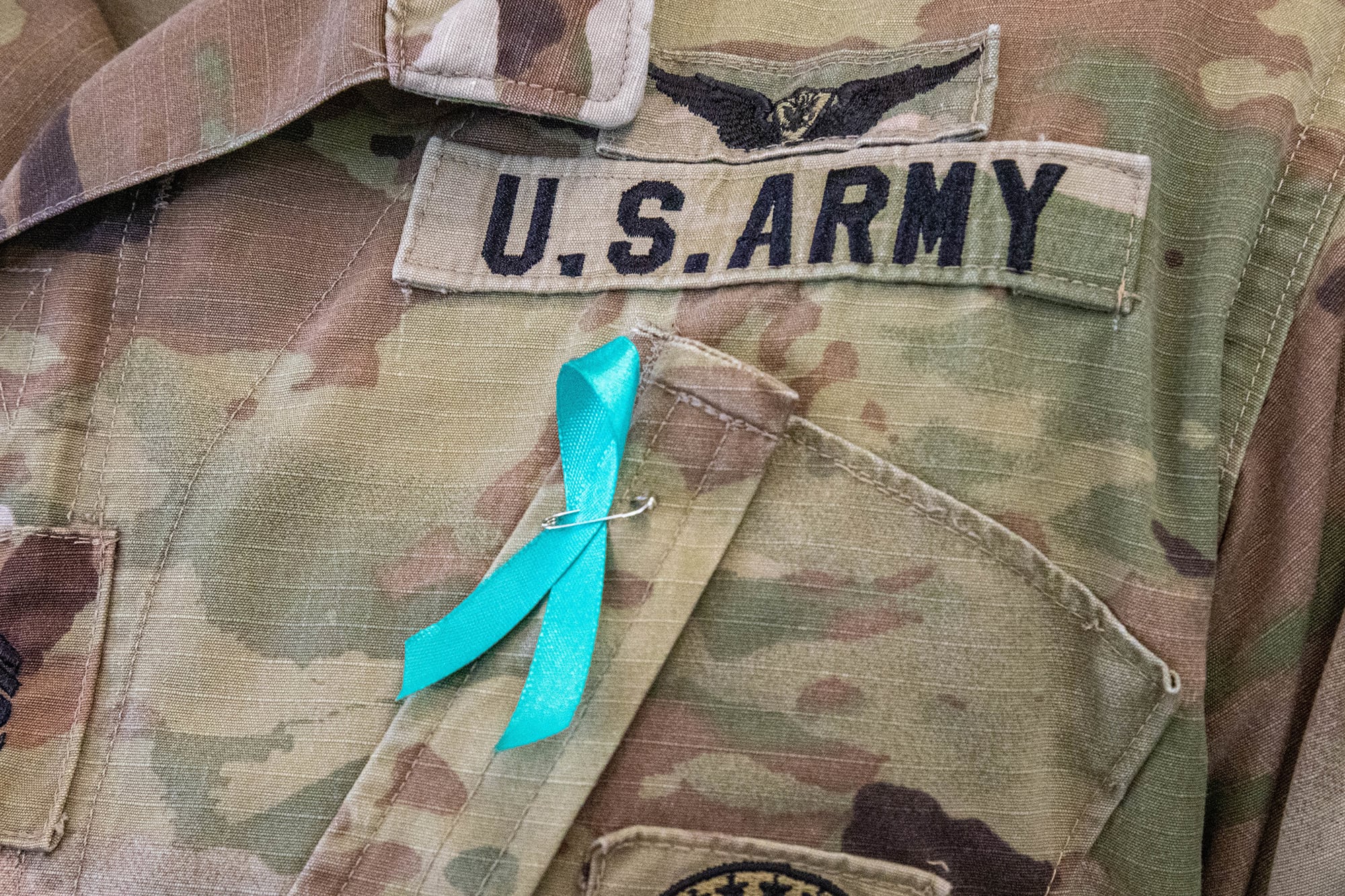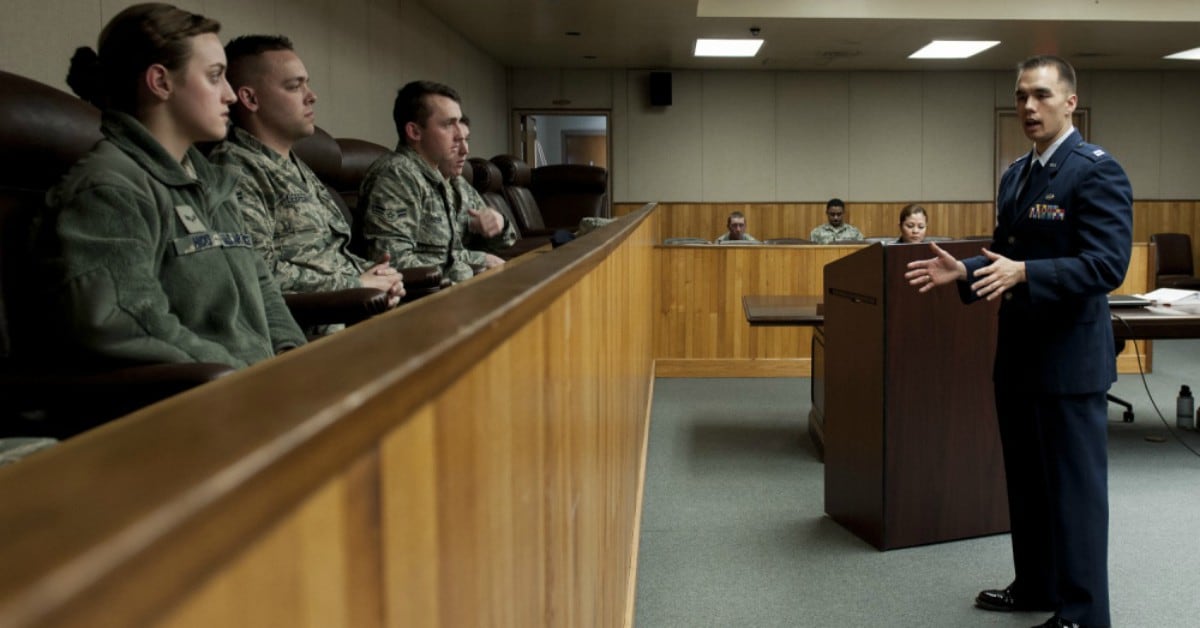For the last decade, advocates for sexual assault victims have pushed unsuccessfully for sweeping reforms to how military leaders handle those legal cases within the Defense Department’s justice system.
But that all could change this year.
On Thursday, a sizable bipartisan coalition of Senate lawmakers announced their latest push to remove sexual misconduct cases from the traditional military chain of command, establishing instead an independent counsel’s office to oversee the cases. The move comes one week after an independent Pentagon review commission recommended that independent authorities handle those cases, arguing they would be better qualified to deal with the complexities of evidence gathering and prosecutorial decisions than military leaders unfamiliar with the cases.
RELATED

The congressional proposal, led by Sen. Kirsten Gillibrand, D-N.Y., has gained support among lawmakers over the years as Pentagon promises to curb harassment and abuse in the ranks has failed to materialize. At Thursday’s event, Gillibrand was joined in support of the move by Sen. Joni Ernst, R-Iowa, and Ted Cruz, R-Texas, two of the more vocal opponents to the idea in the past.
The measure has failed in the Senate in recent years by a margin of just a few votes. Changing the minds of just a handful of the top critics could mean a completely different result this year.
“This really has been an evolution for me,” said Ernst, an Army National Guard veteran and herself a sexual assault survivor. “While I didn’t [in the past] support taking this decision out of the chain of command, I said I would always keep an open mind. And if we didn’t see things change, then perhaps it would be time to make those changes.
“That’s what we need.”
Pentagon leaders have long opposed the idea of taking the potential criminal cases out of the hands of unit commanders, arguing that it removes the responsibility of maintaining good order and discipline among their troops.
Reports of sexual assaults have risen steadily over the last 15 years, according to Defense Department records. In 2019, the latest year for which data is available, military leaders received more than 7,800 reports of sexual assault among troops, but acknowledged the actual number of cases could be several times that.
Despite public focus on the issue, the conviction rate for alleged attackers in those military cases has decreased over the last decade.
“We’ve seen flag officers come to Capitol Hill for years promising they are going to tackle this problem,” said Tom Porter, executive vice president of Iraq and Afghanistan Veterans of America. “It’s not working.”
Gillibrand has long argued that shows that military leaders either don’t know how to properly handle the cases or are apathetic to solving the cultural problem of sexual misconduct within the ranks.
“[Service members] are more likely to be sexually assaulted by a fellow service member than be shot by the enemy at war,” she said.
“It’s clear that this system is not working … I’ve heard from so many survivors who bravely came forward in search of justice, only to have their cases outright declined, and then face more harassment and retaliation because they came forward.”
Gillibrand’s legislation calls for handling of “serious crimes” by specially trained military prosecutors, but carved out exceptions for cases involving “military crimes” like failure to obey orders.
RELATED

Cruz said those provisions, coupled with the lack of Pentagon progress on the issue in recent years, won him over to the need for sweeping reforms to the military justice system.
“I have two daughters who are 13 and 10,” he said. “I don’t know if they’ll choose to serve. But I’m damn sure I want them protected from sexual assault if they do choose to serve.
“This is responding to the problem that we’ve heard testimony on year after year after year, which is a commanding officer who has divided loyalties with the assailant and the victim.”
Senate Armed Services Committee Chairman Jack Reed, D-R.I., said earlier this year that the provision could be included in this year’s defense authorization bill, expected to be passed this fall. Defense Secretary Lloyd Austin is expected to respond to the commission’s recommendations sometime next month.
Gillibrand said she is hopeful that momentum will lead to the sweeping changes finally being put in place.
“There has been no progress, truly no progress, and so many indicators are going in the wrong direction,” she said. “It’s intolerable, and at some point it is our job to provide oversight and accountability to the armed services.
“This is our job, because it is necessary to create a better, more professional system where justice is possible.”
Leo covers Congress, Veterans Affairs and the White House for Military Times. He has covered Washington, D.C. since 2004, focusing on military personnel and veterans policies. His work has earned numerous honors, including a 2009 Polk award, a 2010 National Headliner Award, the IAVA Leadership in Journalism award and the VFW News Media award.




